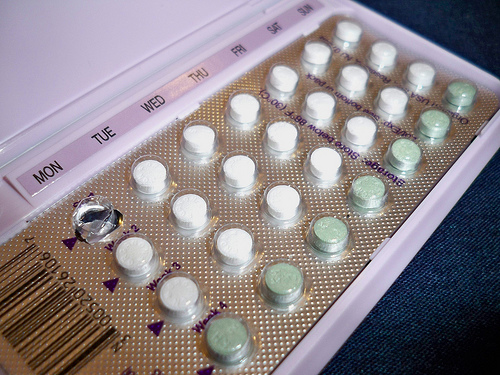I’m a member of a small, but increasing minority: the stay-at-home father. Like stay-at-home mothers always have, I’ve put aside my professional ambitions and earning power to be the primary caregiver for our children. I’m not saying that I would change that. I really love my kids and wouldn’t trade places with anyone in the world, but the sacrifices are significant. As a man whose life course was altered by an unexpected pregnancy, Tracy Clark-Flory’s recent Salon article “What will ‘the male pill’ change?” struck a chord.
Let’s start with the reality: There is still no male pill or any equivalent male contraceptive today, nor is there likely to be one in the near future. Over the past 20 years, there have been countless reports of imminent breakthroughs in male artificial contraception, ranging from pills to implants to shots, all designed to prevent sperm from reaching an egg with minimal side effects to the sperm producer. And yet, despite all this talk, not a single product of this type has been brought to market. The “male pill” article ends on a sober note, quoting the inventor of the female oral contraceptive saying: “I do not see the faintest chance of [a male pill] being approved in the next couple of decades.”
All of this talk about a male pill has reopened the debate about why it’s not yet available. Like many debates involving gender politics, the discussion often breaks down into nature vs. nurture arguments. The nature camp argues that it is not surprising that male contraception has languished because it is more difficult to safely incapacitate the male reproductive system. The nurture side believes that the real impediment is attitudes about male contraception; both in term how men and women negotiate responsibility for birth control and the attitudes of pharmaceutical companies about men’s propensity to take responsibility for this decision. Wherever you choose to place the blame, the lack of a male pill is a huge disappointment, because there’s an increasing number of men (and women) – including myself – who would love to have greater control over the reproductive future of our families. I see my own experience as indicative of why this is the case.
Eight years ago, we had three boys: 8, 6, and 5 (all planned, more or less). My wife was working and I was at home. She was on the pill. After 8 years of not working outside the home, I was planning to return to my career in the fall, when all of the boys would be in school. However, just a month before school started, my wife came home and said she was pregnant. For some unknown reason, the pill had failed. I was in a daze for weeks, scrapping all my plans to finally go back to work, and feeling both stupid and helpless. I’m a well-educated adult, but at the time I felt like a 17-year-old girl who’d gotten knocked up in the backseat of a car.
Despite my shock, life went on. My wife gave birth the following spring and went back to work after a few months. I stayed home, where I remain today. Now, I don’t want to seem like I’m complaining. I’m well aware I could have used a condom to be extra careful. But it would have been wonderful if a male pill had been available to me as a simple and effective means of contraception. As it was, after the birth my wife tried to return to the pill, but its increasing side effects forced her to stop taking it. After that we agreed that I would be primarily responsible for birth control, and I was – being very, very careful and using condoms.
Our fourth son really solidified our “role reversal” in my household. Feminists will be forgiven for chuckling at our situation: simply put, to my wife, sex was now mostly about recreation while for me it involved mostly (preventing) procreation. The unplanned pregnancy did not set her career plans back much, but it had devastating consequences for mine. After three years of diligence and condoms, I had a vasectomy, which finally leveled the playing field (at least in the bedroom).
I’m very happy and proud to be a father of four. I’m very lucky that we can afford our lifestyle on my wife’s salary. But having a safe, reliable male contraceptive would have given me a measure of greater control over my life. Unfortunately for all of us, it still seems to be a wish and a hope.
The question I want to ask is: how will things change if we don’t get a male pill? After all, the world is changing. Gender roles are no longer functioning as they used to. Men and women no longer approach parenthood and careers with the same expectations that ruled society in previous generations. The number of stay-at-home dads and breadwinner moms is increasing. I think you’ll agree: It’s about time for men to have more control over their reproductive futures, as well.
*Michael Parsons is the author’s pseudonym.
Photo credit starbooze/Google Images.

